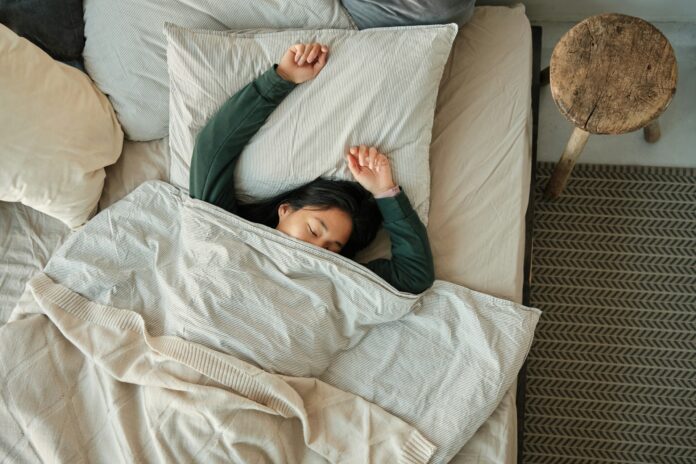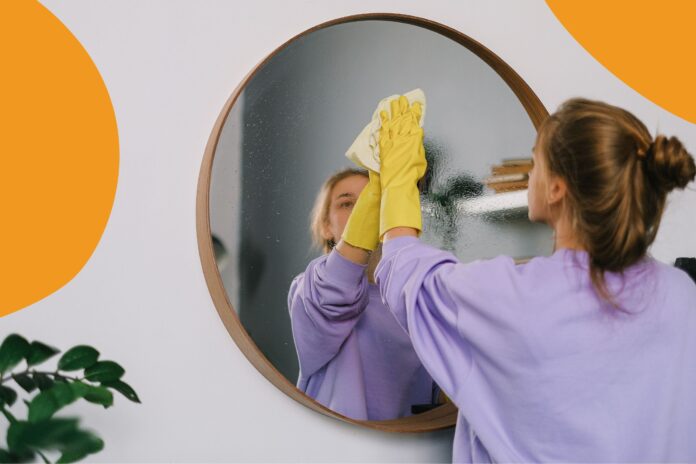Rarely does dream versus reality so starkly disagree. In the jealous minds of those chained to a desk, in thrall to a 9 to 5, the freelancer’s life begins in bed at 11am, checking a few emails while still in pyjamas, before a long and languid lunch merges into a Countdown binge, a cursory check of a few more emails, and then clocking out in time for Neighbours.
The truth, of course, is somewhat different. The boundaries of home and office converge in such a way that you never clock out, even answering emails in your sleep. The weekends are still work days, and the money rarely arrives when it’s supposed to.
There’s no holiday pay, in fact, there’s no holiday; laptops come everywhere and anywhere. No surprise then, that freelancers are particularly vulnerable to stress related mental health problems. Well, it’s time to take some proactive steps to take back control of your wellbeing, we think, with these; our 5 IDEAL stress busting tips for freelancers.
PRACTICE MORNING YOGA
As anyone who has given morning yoga a try will testify, there really is no better way of getting in the right frame of mind for the day ahead than a few simple stretches soon after you rise.
This is especially pertinent for freelancers and those with home offices, as focus can be a particularly difficult thing to maintain when domestic distractions are coming at you from all sides as soon as your day gets going. Procrastination can take many, tempting forms.
A quick morning yoga session, with its invitations to ‘set your intentions for the day’, can be just the ticket for furtive, fertile minds. What’s more, it’s been suggested time and time again that yoga is an anxiety busting, stress reducing sensation. Science agrees, so what better time to start than now.
A HOLISTIC, HEALTHY DIET
We’ve all been there; you’re at home, elbows deep in emails and fighting off hunger pains with the remaining length of your arm. Because, for most, the home office doesn’t coherently double up as the office canteen, and due to this, the freelancer diet can be an erratic one, to say the least.
And although sometimes the link isn’t immediately obvious, an unhealthy diet is inextricably linked with a level of mental anguish. Conversely, a decent, attentive diet can do wonders for the mind. Foods which are thought to reduce stress and anxiety reduction include avocados and bananas (high in potassium, known to lower blood pressure), bitter, leafy veg like swiss chard (whose magnesium balances cortisol, the body’s stress hormone), and omega 3 rich fish like mackerel and salmon, which are great for heart health.
Tea is also known as a great stress buster, with peppermint tea a muscle relaxant and chamomile often used in the fight against insomnia.
SET BOUNDARIES DIGITALLY
If you’re not strict and disciplined about your screentime, as a freelancer you’ll likely find that your eyes are fixed on a laptop or phone from the moment you first sit down to work in the morning to the point you turn in for the night. And that’s no exaggeration and certainly no joke.
With no true downtime, stress is inevitable. Sometimes willpower alone just isn’t enough, especially when your income depends on your constant clicking, typing and scrolling, to drag yourself away. You can, however, set various digital reminders, automatic messages and timed lock outs to help you wrestle back control of your work/life balance. Consider an out of office reply from 6pm until the next morning, to mimic closing the office door behind you.
Go one step further, and set locks on your devices so you’re not able to access your emails and files after a certain time each evening. It makes sense to set one too for your lunch break, even if it’s just for 15 minutes, to allow you a little time to recharge and replenish.
BAN APPLIANCES FROM THE BEDROOM
Scientists are becoming more and more certain that getting a good night’s sleep is the single most important thing we can do for ourselves in terms of improving physical and mental wellbeing. It’s vital, then, to get those all important seven to eight hours if you’re to keep stress and anxiety at bay.
As a freelancer, you’ll be all too aware of how the home office space can interfere with a regular bedtime routine. The best thing you can do to separate your work from your domestic life is by making your bedroom a work and screen free zone. Not only does the dreaded blue light of tablets and phones wreak havoc on our circadian rhythm, but answering emails from bed also disrupts our brain’s association with it being a place reserved for sleep.
Accordingly, if you don’t shut down and log out sufficiently before bed, your brain won’t know it’s time to shut off for the night.
CLOSE EACH DAY CEREMONIOUSLY
Finally, we can’t emphasise enough the importance of having a ritual or ceremony associated with the end of the working day which you carry out each day to draw a line under things and signal it’s time to kick back. This could be something as simple as closing your laptop and placing it in a box or protective sleeve for the evening, or something more definite like going for a run once the working day is done.





